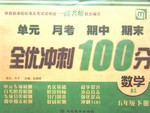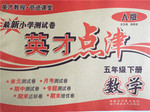题目内容
The law has a great many rules, showing when and how far a man is to be punished, or if he should be made to hand over money or property to his neighbors, and so on. These rules are contained in books. A lawyer learns them mainly by reading books.
He begins by doing little else than reading, and after he has prepared himself by three years’ study, still, he has to, almost every day, read more about some new questions which he has to answer.
The power to use books, then, is a special skill which a would-be lawyer ought to possess. He ought to have enough flexibility(灵活性)to make it easy for him to collect ideas from printed words. He ought to have some readiness to find what a book contains, and something of an instinct(直觉)for where to look for what he wants.
But although this is the power which he will first feel in need of, it is not the most important. A lawyer does not study law to recite it; he studies it to use it and act upon the rules which he has learned in real life. His business is to try cases in court and to advise people what to do in order to keep out or get out of trouble.
1.The first thing a law student has to do is to _______.
A.read books B.hand over money
C.practice law D.answer questions
2.The major business of a lawyer is ________.
A.to discuss the material he has read
B.to advise people who have law problems
C.to learn about real life
D.to study the law
3.What is the most important to a lawyer?
A.To possess a lot of books.
B.To have enough flexibility when collecting ideas from printed words.
C.To be able to quickly find out what a book contains.
D.To be able to use his book knowledge in the right way in his future business.
4.According to the passage, a good lawyer should know how to ________.
A.understand and use what he reads
B.be effective in everything
C.collect ideas from different sources
D.be effective in court
1.A
2.B
3.D
4.A
【解析】
试题分析:文章主要说明了作为律师首先要多读书,然后正确理解和运用所读的书,并帮助那些有法律问题的人。
1.细节题,由第一段A lawyer learns them mainly by reading books.可知做为律师首要是读书。故选A。
2.细节题,由His business is to try cases in court and to advise people what to do in order to keep out or get out of trouble.可知律师的主要业务就是向由法律问题的人提供建议。故选B。
3.细节题,由he studies it to use it and act upon the rules which he has learned in real life可知选D。
4.推理题,he studies it to use it and act upon the rules which he has learned in real life可推出好的律师要知道如何理解和运用他所读的书。故选A。
考点:说明文的阅读。
点评:这是一篇说明文,主要考查细节问题,考查考生对细节的理解,要求考生细心阅读,有很强的理解能力。

 全优冲刺100分系列答案
全优冲刺100分系列答案 英才点津系列答案
英才点津系列答案The law has a great many rules, showing when and how far a man is to be punished, or if he should be made to hand over money or property to his neighbors, and so on. These rules are contained in books. A lawyer learns them mainly by reading books.
He begins by doing little else than reading, and after he has prepared himself by three years’ study, still, he has to, almost every day, read more about some new questions which he has to answer.
The power to use books, then, is a special skill which a would-be lawyer ought to possess. He ought to have enough flexibility(灵活性)to make it easy for him to collect ideas from printed words. He ought to have some readiness to find what a book contains, and something of an instinct(直觉)for where to look for what he wants.
But although this is the power which he will first feel in need of, it is not the most important. A lawyer does not study law to recite it; he studies it to use it and act upon the rules which he has learned in real life. His business is to try cases in court and to advise people what to do in order to keep out or get out of trouble.
【小题1】The first thing a law student has to do is to _______.
| A.read books | B.hand over money |
| C.practice law | D.answer questions |
| A.to discuss the material he has read |
| B.to advise people who have law problems |
| C.to learn about real life |
| D.to study the law |
| A.To possess a lot of books. |
| B.To have enough flexibility when collecting ideas from printed words. |
| C.To be able to quickly find out what a book contains. |
| D.To be able to use his book knowledge in the right way in his future business. |
| A.understand and use what he reads |
| B.be effective in everything |
| C.collect ideas from different sources |
| D.be effective in court |